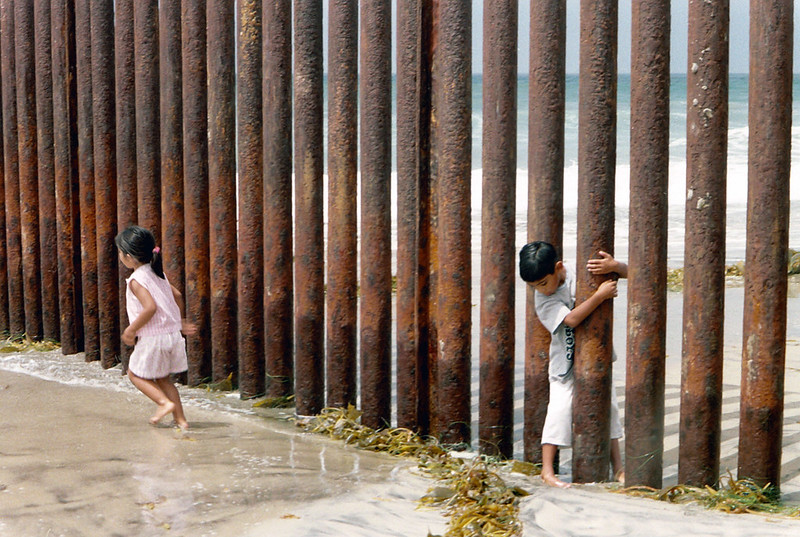Boston Review | November 16, 2022
The problem isn’t new; it’s the bordered logic of global apartheid itself.
I grew up on the short story “Toba Tek Singh,” an Urdu satire on the Partition. While the story’s protagonist is a Sikh man, for whom the story is named, the character that stuck with me most was an unnamed man in a mental health facility in Lahore. Refusing to take part in the partitioning of patients between India and Pakistan, he climbed onto a tree and proclaimed, “I do not want to live in either India or Pakistan. I am going to make my home here in this tree.”
The Partition—the scars of which reverberate today in brahiminical Hindutva fascism, the genocidal Indian occupation of Kashmir, mass protests of debt-ridden farmers, and counterinsurgency in Panjab—displaced at least 15 million people and killed at least one million across the newly drawn borders. My grandfather’s own family was displaced from their village, after which he started working the passenger and cargo trains that transported up to 5,000 refugees a day. He later recounted stories of torture, kidnappings, burnings, rapes, and massacres. In the afterlife of this carnage, I found the seemingly mad man on the tree marvelously rebellious and utterly lucid.
To be a modern nation-state in a state-centric world presupposes the necessity of a secured border. Radhika Mongia argues, “Today all states embody a historically produced colonial dimension, with the citizen/migrant distinction as one of the primary axes of such differentiation.” Borders maintain hoarded concentrations of wealth accrued from colonial domination while ensuring mobility for some and containment for most—a system of global apartheid determining who can live where and under what conditions. The Indian Border Security Force is the world’s largest border security force, Europe’s Mediterranean border is the world’s deadliest border, and Australia jails detainees for an average of 689 days in its matrix of offshore immigration detention centers. As Toni Morrison described in her prophetic 1997 work, “Home,” “The contemporary world’s work has become policing, halting, forming policy regarding, and trying to administer the movement of people. Nationhood—the very definition of citizenship—is constantly being demarcated and redemarcated in response to exiles, refugees, Gastarbeiter, immigrants, migrations, the displaced, the fleeing, and the besieged.”


